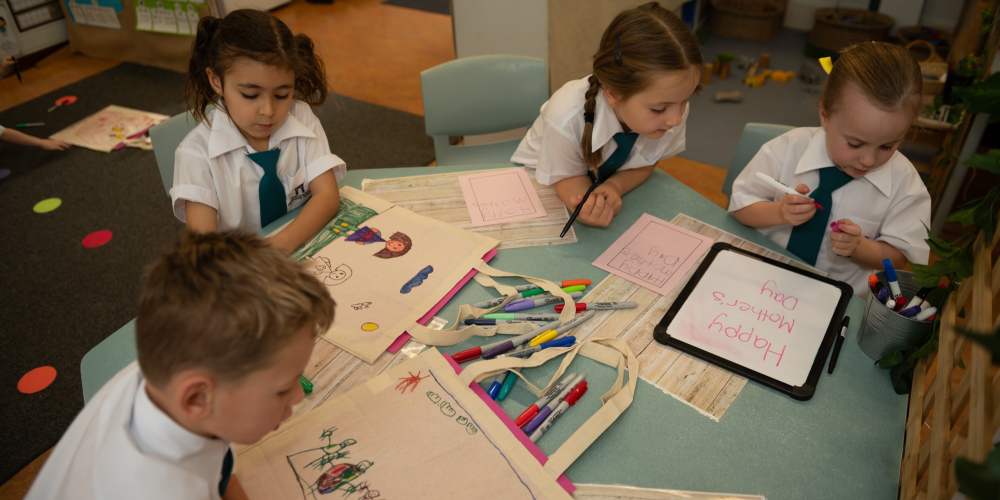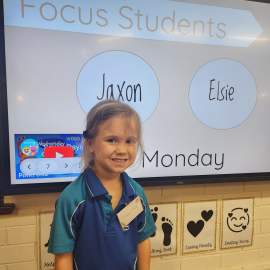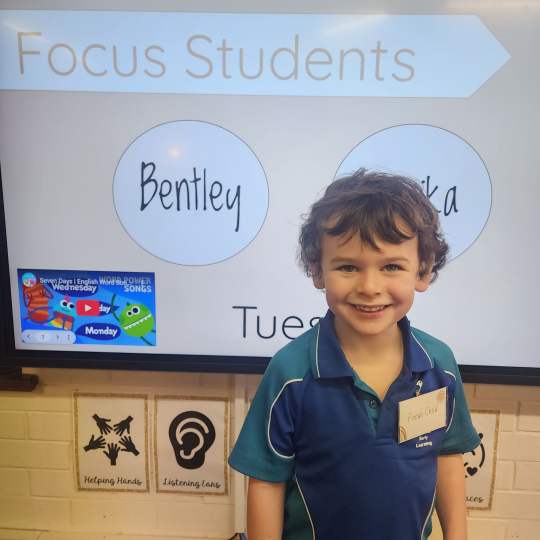
Walker Learning
We are proud of our play and individual inquiry-based pedagogy, that is well embedded in Kindergarten to Year 2 classrooms. It provides an authentic personalised learning model of teaching and learning that is effective across all cultural, , geographical and social spectrums. The pedagogy uses developmentally appropriate ways of helping to engage children in meaningful and relevant strategies that enhance academic skills alongside social and emotional development.

The Walker Learning Approach was developed and designed by Kathy Walker and Shona Bass to engage children in authentic and meaningful ways so that children enjoy their learning wherever they live across Australia. It draws upon evidence from neuroscience and human development and reflects and respects the uniqueness of culture, family and relationships. It uses play-based and personalised learning theories as its basis and retains explicit instruction of literacy and numeracy.
Rather than use philosophies developed from overseas, the Walker Learning Approach was specifically designed to reflect the richness and diversity of Australian cultures from inner urban cities through to remote and regional areas including indigenous communities and cultures. Theories of play are used by many great philosophies from across the world and the Walker Learning Approach draws from many great play theories which are evidence-based and supported.
The Walker Learning Approach is the very first full play pedagogy designed in Australia and is now being implemented across Australia and internationally. The Walker Learning Approach requires careful consideration and intentional implementation by schools in order to ensure effective teaching and learning occurs.
K-2 Investigations
Four mornings each week, our early learning classes begin the day with a hands-on, play-based session called Investigations. There is a minimum of eight learning areas on offer in each classroom and these areas provide students with an opportunity to pursue their interests and practice class learning intentions through different open-ended experiences. During each Investigation session, there are focus children, a reporter, and a photographer. The morning Investigation starts and ends with the teacher scaffolding the student's learning and drawing attention to the current class learning intentions, making connections between the student's experiences and the current learning focus. Every day after Investigations, students have formal instruction in literacy, numeracy, and other learning areas. The student's experiences from Investigations are used to springboard from the morning's Investigation experiences to this formal teaching.
Focus Children
The Walker Learning Approach includes the opportunity for each student to be a focus child once a fortnight. The focus children speak to the class during ‘tuning in’, informing their peers and teachers of their intentions for the morning’s Investigations. The teacher works individually with each focus child during Investigation time, scaffolding the student’s learning through their interests. This is an excellent opportunity for relationships to be developed between the students and the teacher. Focus children report back at ‘reflection time’ to share their observations and learning.
Reporter and Photographer Roles
During investigation time students rotate through the reporter and photographer roles. The reporter and photographer are provided with a special personalised task to complete during the day’s Investigation. Reporters can be seen wearing the ‘R’ vest with a clipboard in hand. The photographer wears the ‘P’ vest and snap pictures on our class camera. The specific tasks given to the reporter and photographer are related to the fortnightly learning intentions and are personalised for each student depending on their strengths and needs. Reporters and photographers report their findings to the class during reflection time, providing an opportunity for students to develop their skills speaking in front of the class.


